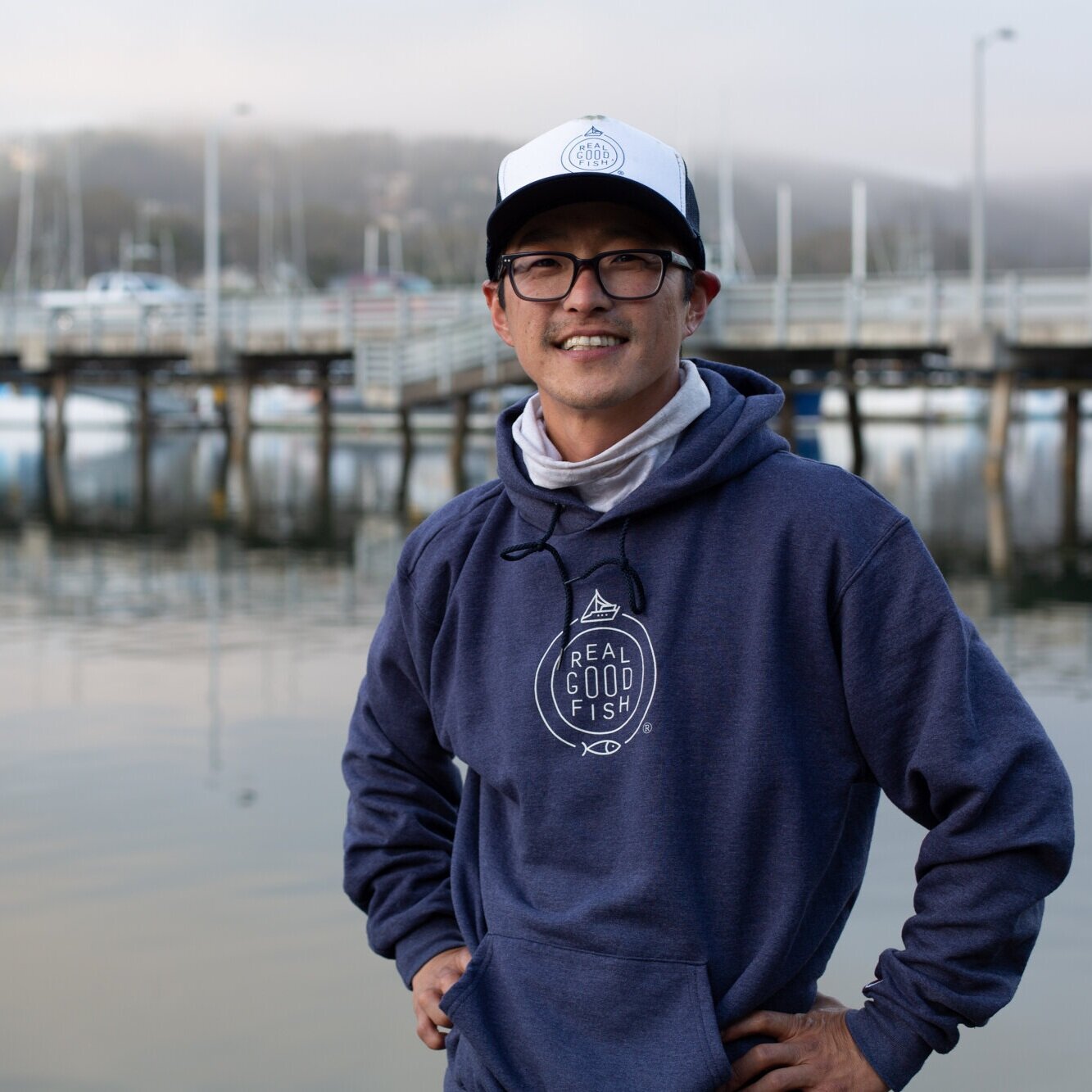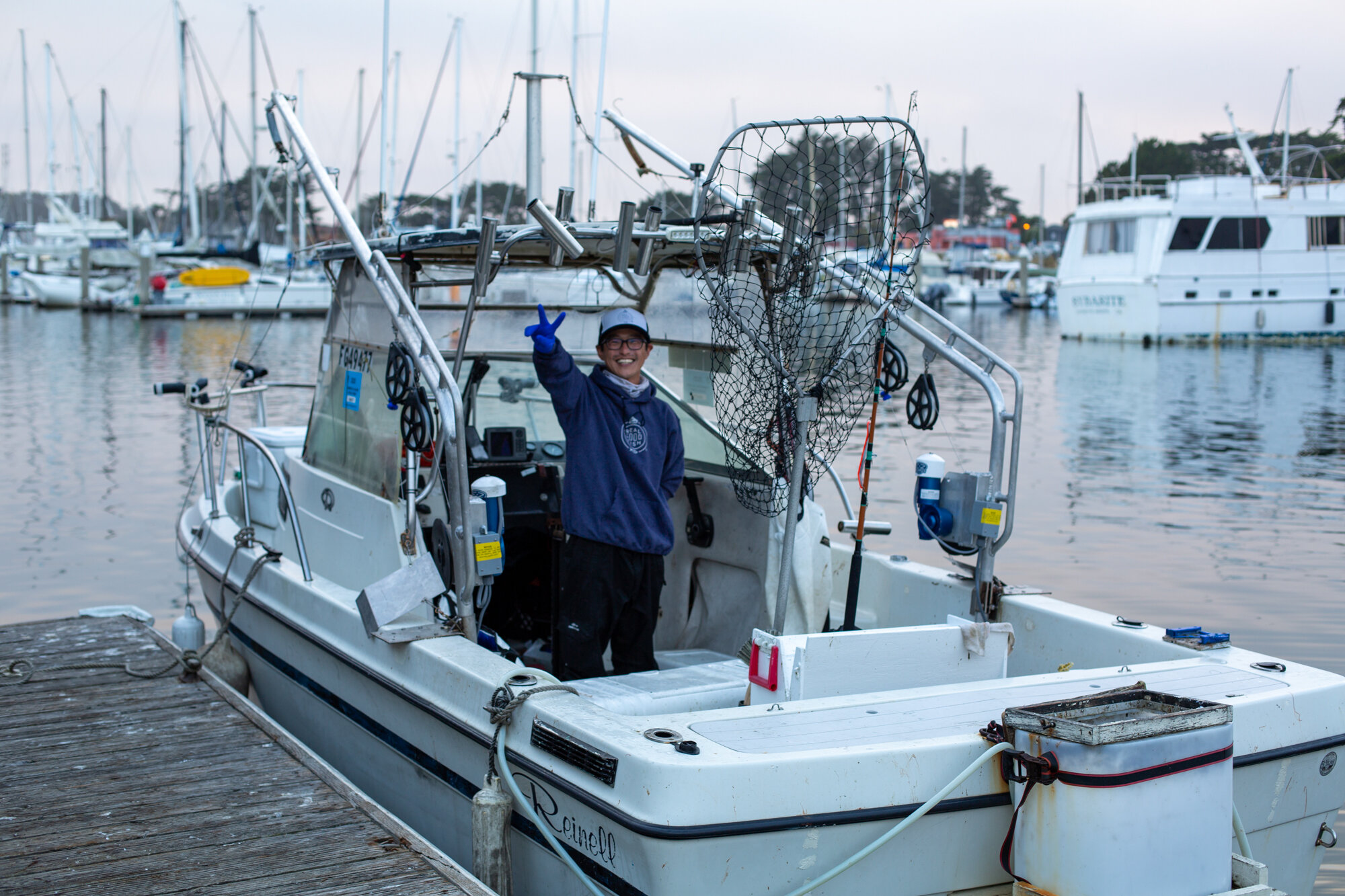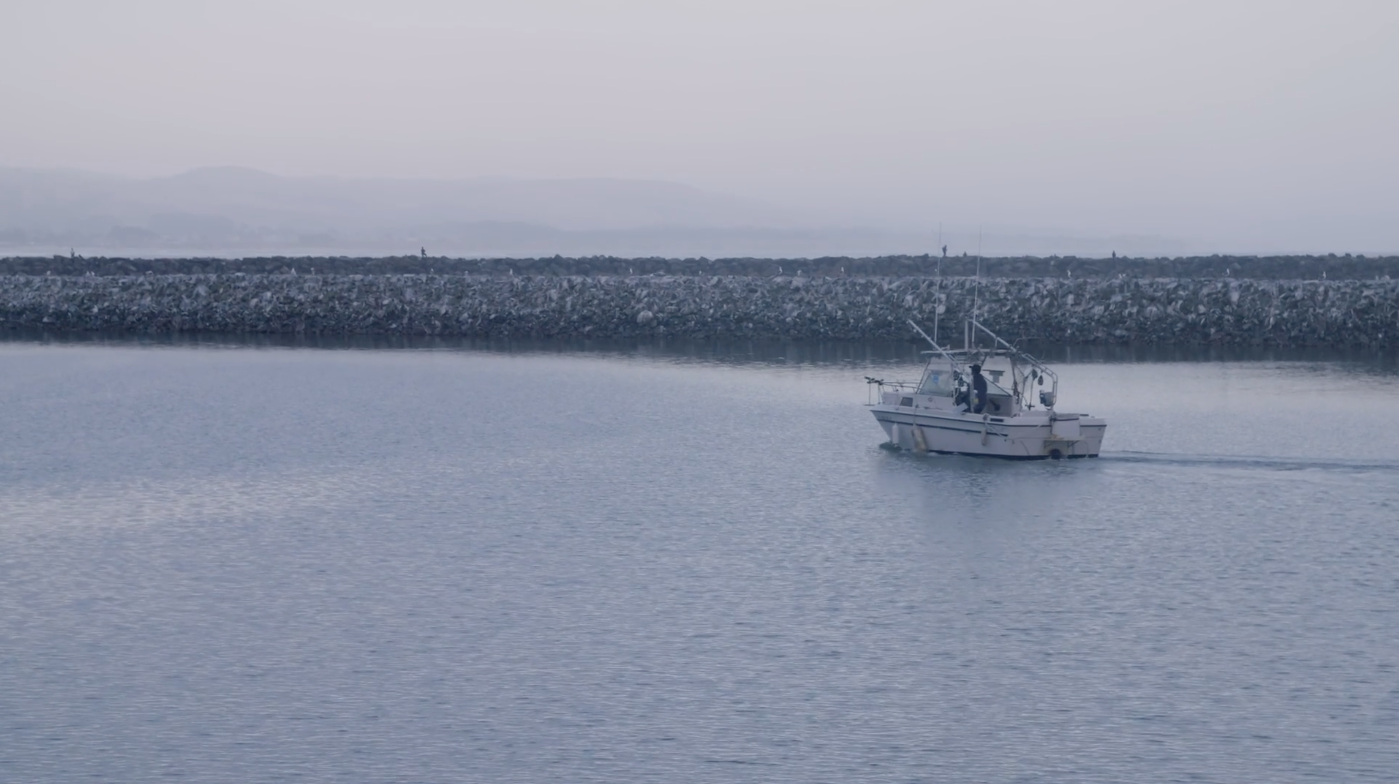Tuk Su Yi, F/V Papa Son
Tuk Yi, F/V Papa San. Photo: TrimTab Media
#KnowYourFisherman
Tuk Su Yi
F/V Papa Son
Moss Landing, CA
Tuk learned to fish from his father, and began fishing on his boat after his father passed away. Tuk believes fishing is a lifestyle, and continues this work to provide fish for seafood lovers, and to make his father proud.
“My dad took me out on a little 12-foot aluminum boat, and ever since then, I was just hooked.” — Tuk Su Yi
Tuk grew up in Marina, California, and fishing has been a part of his life since he was born. His father was an engineer on a cargo ship, and fished recreationally, inviting his son along regularly.
“I always went with him and slept a lot on the boat when I was a kid while fishing. But I always woke up, and he always told me, ‘you better sleep early, because, I'm not going to wake you up.’ And I just learned to just kind of be responsible that way - in a sense that taught me responsibility to wake up on time,” says Tuk.
While it was a hobby at first, fishing has become a career for Tuk. When his father died, he started fishing commercially on his dad’s boat, a 20-foot Reinell, now named the “Papa Son.”
“It's definitely the influence of my dad - he gave me the drive and the passion. I keep fishing to make him proud. But you also have to love it to do it. Because if you don't love it, you'll be over it real fast. You know? It's my dad's boat, so I just kind of want to keep the tradition going and keep my dad proud,” says Tuk.
Tuk Yi on his boat after offloading King Salmon in Half Moon Bay in June 2020. Photo: TrimTab Media
What does a typical day of salmon fishing look like?
“It's definitely hard work. You wake up at 3:00 in the morning, and sometimes you get home at 10:00 at night, you're not done. And then you got to do it all over again–wake up 2:30 in the morning, 3:00 in the morning, and repeat.
We go out there, and we catch these salmon on hook and line. It's the method we call trolling. We have a lead ball on a wire, and we have quite a few leaders, and we try to trick these salmon into schools of bay fish and get them to bite. We trace these salmon up and down the coast–it could be Fort Bragg, Bodega, Half Moon Bay, Monterey, even Morro Bay. It's like literally one [fish] at a time. And so that's what makes it challenging. And once we get these salmon on board, we bleed them, dress them and ice them right away, so that by the time the consumer gets it, it's pristine.
You’ve got to take pride in something you do. Because if you don't take pride in what you do, what's the point? We want the consumers to have the best product to consume, and you can really taste the difference.
Some days it's slow, and some days it's actually really good. Yesterday from sunup to sundown, I got eight fish, and yeah, I'm grateful for the eight. The next day I got 22, and it's actually a fairly good day. It's nothing like crazy hot and heavy. I didn't get like 50, but yeah…that's definitely the definition of fishing, it's one day slow, next day, good.”
Tuk heading out on a King Salmon fishing trip in June 2020. Photo: TrimTab Media
What’s so special about salmon?
“Salmon is a super special fish where it's very seasonal, and it's very protected for a lot of reasons. And it's just an amazing fish, to think that it goes up and down the coast, way offshore, way inshore, in the rivers. And the best part is, enjoying the fish.
Salmon has so much flavor. You got to keep it simple. You don't want to overload it with flavors. It's got such good flavors that you don't want to hide. But I eat all fish. I like to eat all fish.
Salmon is such a high quality, good for you protein, the best. One of my favorite ways to eat salmon is definitely Toro Sashimi. Get the bones all out ... Sashimi is one of my main choices, the Toro. And then baking it. Just simple butter, brown, sugar, garlic, salt. I mean, that's pretty much it! Black Pepper and then pan fry it, so it’s crispy.”
Which other fisheries do you participate in?
“I do it all. Besides salmon, I fish for tuna, I do the halibut, sea bass, rockcod, lingcod. It's just pretty much all the fisheries that I can fish. Sanddabs are one of the bread and butter species, and one of the tastiest fish I catch.”
Tuk’s load of 22 King Salmon, offloaded in June 2020. Photo: TrimTab Media
What does it mean to you to fish responsibly?
“We have to always look towards the future [and not] overfish or fish unresponsibly …there are laws for reasons. And we have to support that, and it has to be fair in a sense, but we have to keep the future alive for our generation and the generation after that and the generation after that. Being out in the wild open ocean ... there's nothing like it until you actually experience it. Every season is different, one season will be good, and next season will be mediocre, and so on.”
What message do you have for consumers who enjoy your fish?
“As consumers, we have to support the fishery. We have to support the fishermen because this all could be gone. I keep doing the fishing part because of the satisfaction of other people enjoying my product. And that's the greatest thing. And especially when we feed people…When you're feeding people, that's just a whole 'nother enjoyment of life. You know, it's helping each other out and seeing people enjoy the food, because fish is all about food.”




